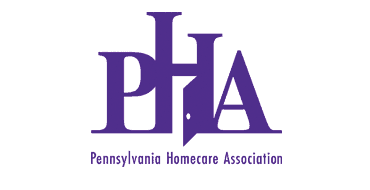 By Lee Horner, CEO, Synzi
By Lee Horner, CEO, Synzi
According to the CDC, patients can be protected against serious diseases like shingles, pneumococcal disease, hepatitis B, and seasonal flu with critical vaccinations. Home health agencies play a key role in educating patients about the importance of vaccination. An agency can provide immunization reminders, refer patients to vaccine providers, and follow-up with patients to ensure vaccination.
Partnering with academic and public health colleagues, the CDC published an article in the journal Clinical Infectious Disease highlighting that the flu vaccine reduced the chances of getting sick and going to the doctor for flu by 38% during the 2017-2018 flu season. The study also estimated that the flu shot prevented 7.1 million illnesses, 3.7 million medical visits, 109,000 hospitalizations, and 8,000 deaths associated with flu during this period.
A flu vaccine is critical for adults, especially if the adults have a medical condition or chronic disease. 30% of adults 50 to 64 years have a medical condition that puts them at high risk of serious complications from the flu. During recent seasons, this adult population had the second highest rate of hospitalization from flu-related complications, after adults 65 years and older. The older adult population (adults 65 years and older) are at high risk of serious complications from flu due to weakening of the immune system; most flu-related hospitalizations and deaths occur in this population segment. Adults with chronic conditions are also at higher risk of developing flu-related complications. Complications can range from pneumonia and bronchitis to intensified symptoms of chronic medical conditions and a weakened ability to fight off infections.
The CDC suggests that adults should receive a vaccine every year to protect against seasonal flu. Adults should also receive the Td/Tdap to protect against tetanus, diphtheria, and pertussis (whooping cough). Based on one’s age, health conditions, vaccines received as a child, and other factors, a patient may also need additional vaccines. Adults with chronic conditions are more likely to develop complications from vaccine-preventable diseases.
Home health agencies can use a HIPAA-compliant messaging and video to ensure that the agency shares a consistent and timely message with patients about the importance of vaccines for their health. With a HIPAA-compliant communication platform, home health agencies can also provide content such as advice pertaining to recommended immunizations. The patient will receive messaging about the importance of a flu shot before and during the flu season. Messaging can be translated into the patient’s primary or preferred language, driving deeper understanding. Engaging communications about needed immunizations will help patients address potentially avoidable health issues complications such as the flu.

